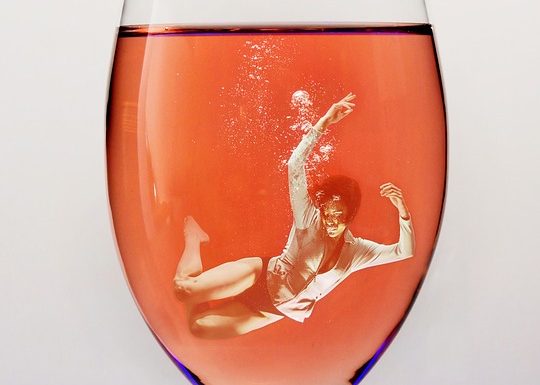
“I really thought it was everybody else’s stupid imagination and that I was absolutely fine; that there was nothing wrong with me.” Carol (* name changed to protect identity) shrugs her shoulders and smiles across at me.
She has agreed to meet up with me in a Leeds café to tell her story; a story of the destructive tornado formed from the toxic cocktail of low self-esteem and alcohol abuse that has raged through most of her teens and caused despair to her and her family until she was 39 years old.
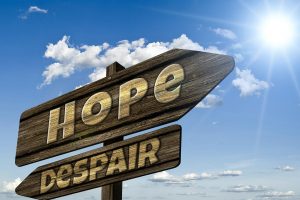
“Not drinking is my vehicle to move forward.”
Today, she hasn’t taken a drink for 4734 days. “On the rare occasion when I disclose my alcoholism to somebody, they go ‘Wow! That’s fantastic, well done!’ To be honest, it doesn’t feel like an achievement. An achievement represents the end of a journey. I’m still on my journey, and not drinking is my vehicle to move forward. There is no end in sight, nor is it wanted.”
“I re-discovered my creative side in here,” Carol points to a door beside us labelled ‘Workshops Upstairs’. “Having suppressed my natural instincts for nearly all my life by always trying to conform to what everybody else might expect of me, coming here to take part in a creative writing course was a revelation,” she admits.
“I was not ready to be left to my own devices.”
“I started drinking heavily when I was 17 years old. My parents and sister had moved to another city. I had begged them to leave me behind. As I was in the middle of my A-level studies, they thought it made sense to rent a bedsit for me.”
“It was the most horrendous experience to be left behind like this. Although I had fiercely believed that I would be happy to be independent and all grown up, I was not ready to be left to my own devices. In the previous couple of years, from the age of about 15, I had become a very challenging daughter. Smoking, drinking, lying; the usual teenage stuff really. My younger sister was the total opposite of me – easy going, open, friendly and affectionate. I guess it was a relief for all of them to get rid of the moody cow that I had become.”

“I never felt I fitted in.”
“I wanted to be loved, wanted to be affectionate and open, but I always felt misunderstood. Perhaps not misunderstood as much as misaligned. Somehow, I never felt I fitted in – even within my family. I have vivid memories of my mum’s ongoing frustration when she often called me an abnormal child from the age of five onwards. She just didn’t know how to cope with her little bundle of determined difficulty. She wasn’t a strong woman, and I guess I had sussed this out from an early age. My relationship with my dad was very different. I doted on him and wanted desperately to please him. But, for him, I was never good enough. If I had achieved a B grade in a school assignment, he would ask me why it wasn’t an A grade.”
“I wallowed in self-righteous self-pity”
“So, from an early age, I had these very conflicting relationships with the people that were supposed to support and guide me to form my personality. Did I blame my parents for my self-destructive streak? Hell, yes. It was my carte blanche throughout my drinking years.” She laughs.
“I wallowed in self-righteous self-pity like a pig in mud. It never even dawned on me to look at my role in all of this; to perhaps try walking in my parents’ shoes.”

“Sobriety is an ongoing process”
“Sobriety is an ongoing process of honest self-assessment and willingness to take full responsibility for your own actions – in the past, present and future. Stopping to drink is only the beginning of this process; it’s the thing that makes it all possible. Towards the end, I was a 24/7 drinker even though I binge drank only at weekends. The 24/7 element for me was the mental addiction. I didn’t have to be drinking to feel the full effects of my alcoholism. From waking up, getting the kids ready for school, throughout my working week, anything I did was tainted with the desire to have the next drink. I was living under a permanent cloud that only seemed to lift when I had that first drink on a Friday night. And, that didn’t last long. The longing for a drink was quickly replaced by the gripping fear of whether I would be able to find enough opportunities to drink and where the next drink was coming from.”
“I had large bottles of wine in my wardrobe and small bottles of wine or spirits hidden in various places in the house. Often, I couldn’t even remember where I had hidden them as the most ingenious hiding place ideas came to me just before I passed out.”

“He never gave up on me”
“It took a toll on my marriage, of course. My kids were too small to notice, although my then five-year-old daughter often called me a ‘Monster’ as my patience levels were sinking as my desire to drink was rising. Towards the end of a full week pretending so hard to function normally, I was a nervous wreck. Dealing with two children and working full time whilst being in the grip of total denial of a full-blown addiction was pure hell.”
“My husband, Jeff (*name changed to protect identity), was my knight in shining armour. Things had become unbearable for him, as he could see clearly what was happening to me and didn’t have a clue how to stop it. He later described his constant state of fear and helplessness as seeing a train hurtling towards the love of his life and not knowing how to get her attention to make her jump out of the way. He threatened to leave me, of course he did. But, he stayed. He still loved me, even though I was hurling abuse at him, telling him it was him who had a problem, not me. He made sure I was safe when I had passed out at yet another party. He never gave up on me.”
“I stopped for him and our children”
“To be honest, I didn’t stop drinking for myself. I felt there was nothing left to salvage. But I stopped for him and our children. The last drink I had 13 years ago was at a family garden party at a family member’s house. I had sneaked off into their dining room, as I knew that’s where they kept the hard stuff. I drank half a bottle of some sort of spirit – can’t remember what it was – straight from the bottle, walked back into the garden and eventually made a spectacle of myself in front of my children and their cousins. I had to be half-carried home with my distressed children witnessing the whole episode.”
“I woke up the next morning on the couch in the front room with my son and daughter standing in front of me, asking ‘are you going to die now, mummy?’ That literally was my wake-up call. I phoned the Anonymous Alcoholics helpline that morning – my last morning with a hangover, raw guilt, mind-numbing shame and blackout amnesia. The first morning of my life.”
“You’re not the only bonkers person out there”
“I’ve since met some amazing people in the AA meetings on my recovery journey. We are all so different but also so alike. And, it is the identification with what you hear when other alcoholics share their experiences, their highs and their seemingly bottomless lows in the rooms that you realise you’re not the only bonkers person out there, and that being highly sensitive is actually a strength and not a weakness.”
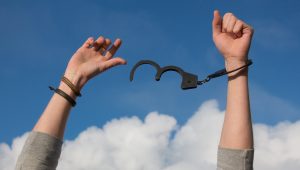
She laughs. “ I see being bonkers as being different, as a clear advantage in life. You are able to view things from all angles, and your mind is always willing to accept new ways of thinking or believing. This opens up so many new opportunities, not only in business but also in everyday life. I’m now able to walk in other people’s shoes, I can forgive and empathise, and most of all, I can take full responsibility for my actions and their consequences.”
“Being different equals being special”
“I now see the ‘abnormal child’ label as a proud one to bear. Being different equals being special. I’m truly grateful for everything in my life – the good and the bad. Because bad things are still happening. That’s life. I once heard somebody say ‘life is a succession of hurdles being thrown in your way, it’s how you deal with those hurdles that determines whether you live a happy life or a miserable life.’ That has stuck with me. It’s so true.”
“As I see it, happiness grows from all kinds of seeds, even the mouldy and the ugly ones; it’s the quality of the soil they are being planted in and the continuous care they are receiving that makes them flourish into a beautiful existence.”
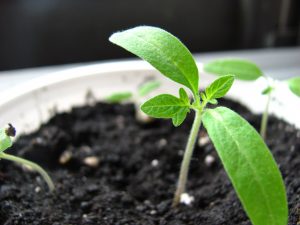
Author’s Comment:
This is just one example of somebody’s experience with their addiction.
Everybody has got a different story, and there are people that haven’t been able to stop yet and people that are having great difficulty staying sober.
If you have got a story to tell about addiction – your own or that of a loved one – please take a look at our Contributor Page and get in touch at caren@storyblog.co.uk.
Your privacy always comes first and we would never publish your name and other details that could identify you without your permission.
I would like to hear from you to arrange an interview or for you to write down your story and publish it here.
Caren 🙂
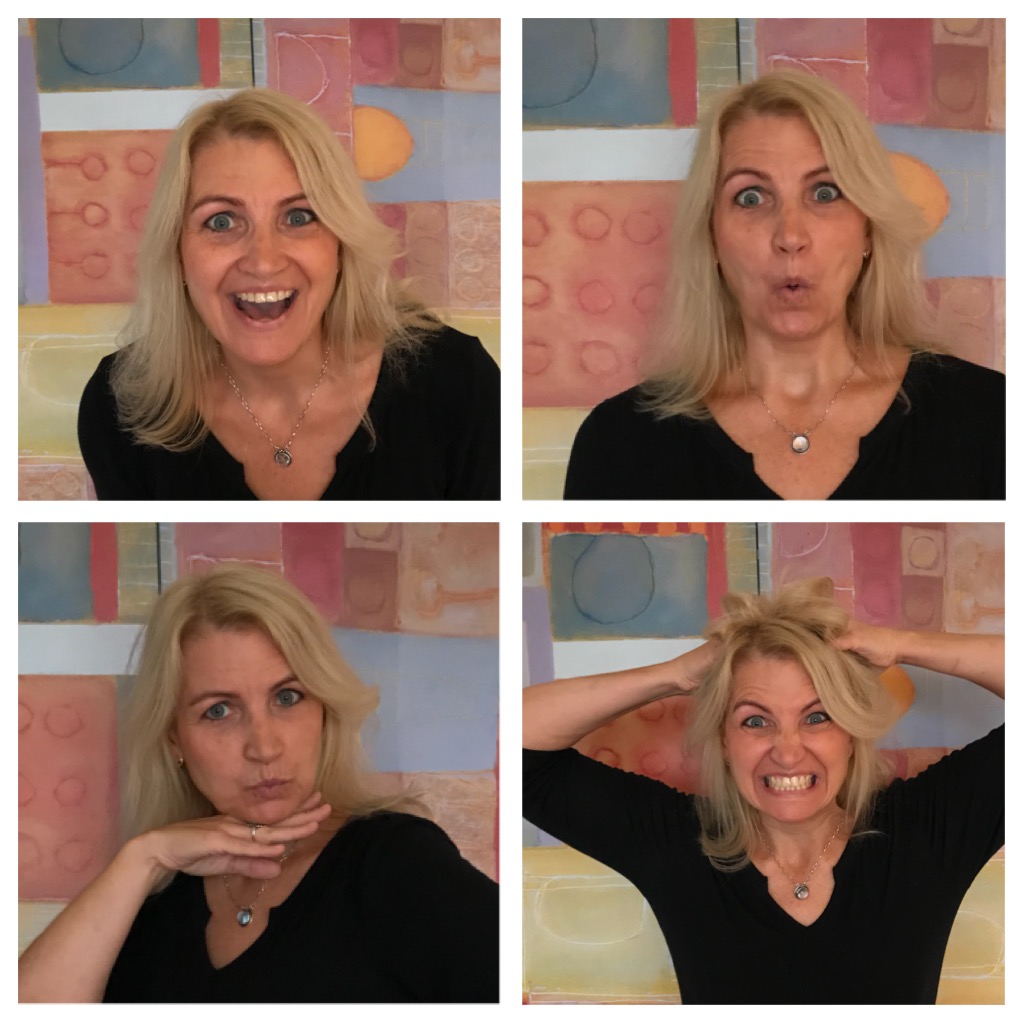
Caren is a qualified and experienced digital copy & content writer with both a corporate and small business owner background. She runs KreativeInc Agency, a web design, development and content creation agency with her autistic son Callum Gamble.
She specialises in creating Inbound Marketing content for business websites and blogs. Using her expert knowledge, skills and personal experience in business development, personal improvement and autism, she crafts content that makes people take action. Her work is found in retail publications, professional websites, on her writer’s platform StoryBlog and more.
She is also an active advocate of neurodiversity in the workplace and co-founder of the NeuroPool network, neuropool.co.uk. Here, she is organising free educational workshops for employers on how to utilise the extraordinary talent found in people with autism, ADHD, dyspraxia and dyslexia within their business.
When she isn’t typing away on her keyboard or spreading her mission, you can see her having her nose buried in a book or hiking up and down the steep hills of the Yorkshire countryside with her husband, son and daughter.
More information at